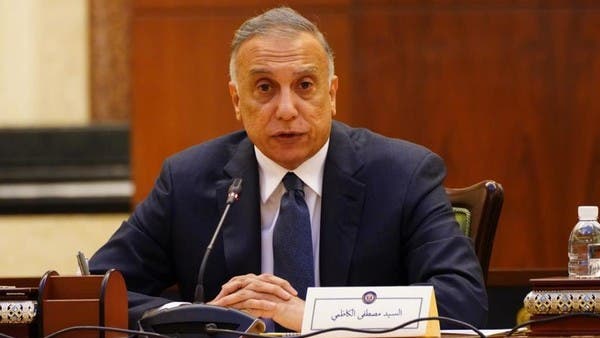Political scandals, leaks, and recordings of important politicians, most notably former Prime Minister Nuri al-Maliki, who assaulted the head of the Sadrist movement, Muqtada, as well as others of the country’s leaders, have recently circulated in Iraq.
Following al-disclosures, Maliki’s Saleh al-Jubouri, Minister of Industry in Adel Abdul-administration, Mahdi’s emerged and swore an oath to the leader of the party selected by Ahmed Abdullah al-Jubouri, known as Abu Mazen.
These incidents revealed the nature of Iraqi parties’ behaviour, which some compared to the behaviour of mafias and gangs that controlled the country’s capabilities by imposing political quotas and establishing economic bodies that controlled ministries and state institutions, once through their parties’ participation in the government and once through the influence of arms and militias.
When the current Prime Minister, Mustafa Al-Kazemi, took office in May 2020, he immediately opened the file of border crossing corruption and enforced state control over them, following years of squandering state financial income through economic bodies of parties and armed organisations.
Al-Kazemi attempted to hold these parties more responsible by establishing a higher government committee to examine corruption cases, and the committee was able to imprison a number of high-ranking officials as a result of corruption cases in which they were implicated.
According to political insiders, “some parties send weak and non-leading persons to government posts in an effort to control them and run ministries through other personalities who have shadow ministerial powers.”
According to the sources, “one of the practises practised by certain parties is that ministers and general managers sign bills of exchange, checks, and resignations without dates, threatening them if they do not obey the party leaders and those close to them.”
During his current administration, Al-Kazemi tried to address the political quota issue by selecting the majority of his technocratic government ministers from the same ministries that they commanded. He also attempted to put an end to the quota debate by having early elections on October 10, 2021.
Because of the actions he took to enforce the prestige of the state, limit the proliferation of unregulated weaponry, and strike some of the leaders of corruption linked with those parties, Al-Kazemi became embroiled in a political battle with those parties on many occasions.
“Gangs and mafias raise the slogans of political parties, which control the country’s resources and have led to the waste of public money, the absence of services, and the decrease in education and health in the country,” said political analyst Najm al-Qassab.
“Recent political scandals have demonstrated, with convincing proof, that these parties deal with mafia techniques,” he continued.
These armed parties and organisations gained control of big investment spaces through their influence in state institutions or through the use of force, prompting the Iraqi government to cancel certain permits and reassess several large investment projects.
Citizens feel that some Iraqi parties have morphed into mafias and gangs, controlling all elements of the Iraqi state.
“The string of political scandals will not end,” an Iraqi political insider told Al-Arabiya.net, “as there are films and recordings that may be more damaging than those that were just disclosed.”
The Central Bank’s currency auction is one of the most visible institutions that parties and armed groups are battling for, and according to the Iraqi Integrity Commission, the sale caused financial harm of around $4 billion US dollars.
Al-Kazemi called the currency auction as “notorious” in March 2021, adding that “his government managed to curb corruption in it.”
“Despite the lack of a financial budget in the country, the Al-Kazemi government was able to handle the country’s affairs and oversee its financial resources,” political scholar Fadel Abu Ragheef observed.
He emphasised the importance of “forming a government free of political quotas, capable of managing these monies away from the economic bodies of political parties, and directing their financial resources toward delivering services and creating infrastructure away from the hands of the corrupt.”

